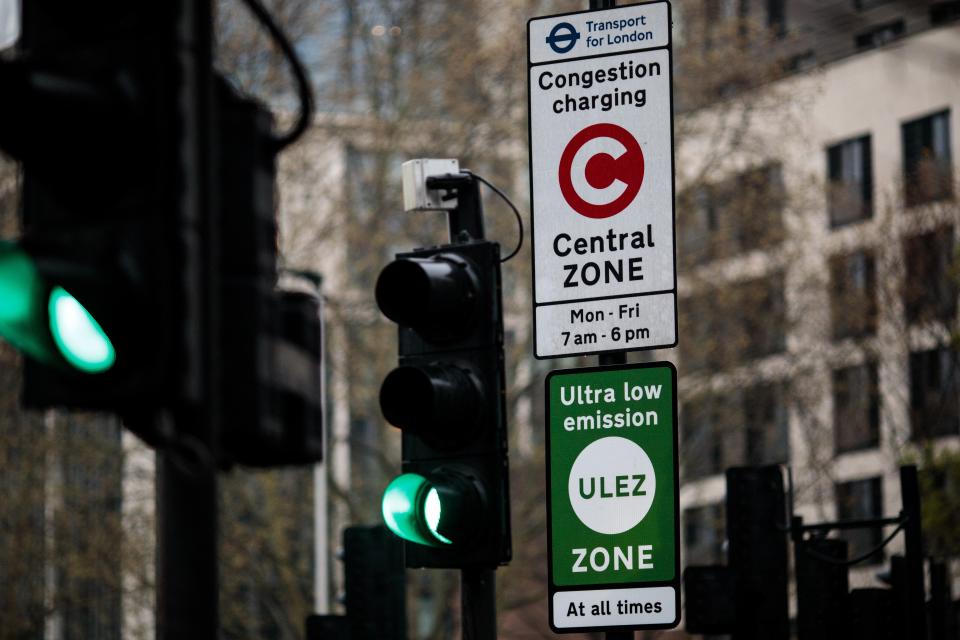Evening Standard Comment: Ulez expansion won’t work without support

Toxic air is a silent killer. Thousands of Londoners die prematurely each year as a consequence of long-term exposure to air pollution. It is linked to cancer and an increased risk of heart disease, strokes and dementia.
Last year, Ella Kissi-Debrah, who died aged nine following an asthma attack in 2013, became the first person in Britain to have air pollution given as an official factor in her death on a death certificate. Without urgent action, she is unlikely to be the last.
The desire to tackle London’s air pollution was behind Mayor Sadiq Khan’s decision to introduce the Ultra-low Emission Zone (Ulez) in April 2019, charging £12.50 a day for vehicles that do not meet air quality standards.
As we report this morning, from October, the Ulez is expanding from central London to create a zone within the North and South Circular roads, taking in another 140,000 motorists.
The Ulez’s initial phase has been a success. According to City Hall, after its first 10 months of operation, concentrations of toxic NO2 fell by 44 per cent.
The extension of the zone — dubbed Ulex — is likely to be its greatest test yet, both of political will and of the public’s appetite for adaptation.
In a poll last month, two-thirds of Londoners backed the principle of higher-polluting vehicles being charged more to drive in the capital. And by 51 per cent to 33 per cent, respondents supported the plan to extend the Ulez into the suburbs.
Yet, support can crumble when theory becomes practice, as signs pop up along roads and leaflets fall through doors informing motorists of the impending change.
We will all be winners from cleaner air, but the transition will create losers too. Many people in the suburbs cannot rely on public transport to get around.
These journeys are not from the suburb to the city centre, but lateral journeys — going to work, making the school run or picking up the shopping. It will also hit small businesses — in and out of London — whose incomes have been decimated by Brexit.
Furthermore, a flood of people desperately trying to sell their diesel cars between now and October may lead to a fall in value on those vehicles.
Then there is the incentive structure. If the charge is the stick, then central Government is sending all the wrong signals in chopping up the carrot — as it did in the Budget when it cut support for the purchase of electric vehicles.
The Mayor has a crucial role to play too — Khan boasts that London has 6,000 electric vehicle charging points, but that is not nearly enough and only 300 of these are rapid charging points.
We all need to make changes in order to cut air pollution and greenhouse gas emissions. The Ulez can help produce the price signals to do that, but these must be accompanied by support.
That must include subsidies to aid in the purchase of cleaner alternatives and reliable public transport, particularly in those outer zones of the capital captured by the Ulex.
Cheers to indoors!
As life slowly returns to normal — with indoor dining restarting from Monday — the weather is making the most of it too. Indeed, just because we want the option of eating and drinking inside does not mean we would not rather sit outdoors and enjoy the sun.
But if it must rain, and rain, and rain, at least we will soon be able to dine with dignity. Let’s raise a glass to that.
Read More
PM urged to commit to action on air pollution in upcoming Queen’s Speech
Why now is the time to act on London’s air pollution problem
Childhood air pollution exposure ‘linked to poor mental health in later life’
Millions of youngsters living in areas with illegal air pollution – Labour
Air pollution and the death of Ella Kissi-Debrah: key questions answered
May 17 indoor reopening will see pubs return to making money, says City Pub Group boss
Pub and hospitality bosses cautiously welcome indoor reopening from May 17

 Yahoo News
Yahoo News 